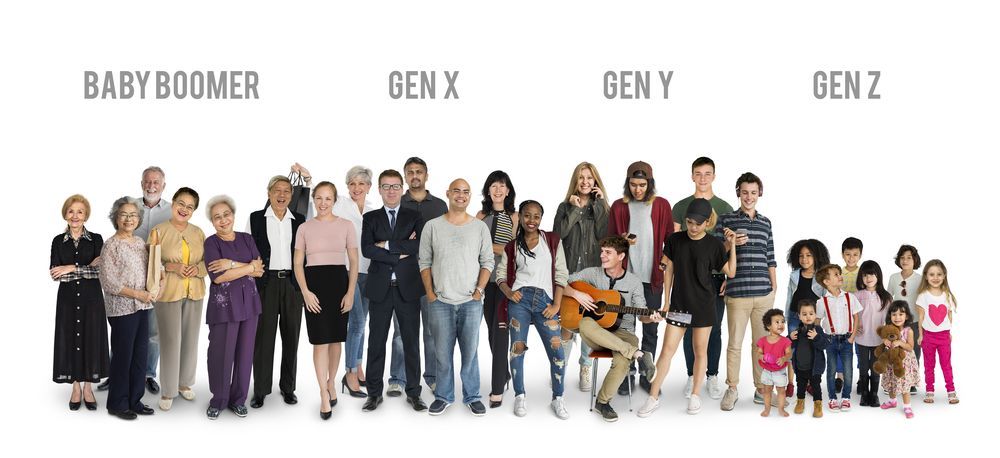Is Now The Time To Buy, Sell, Or Trade In A Used Car?
By Marcela De Vivo • January 16, 2024
The global upheaval in recent years, from the COVID-19 pandemic to geopolitical conflicts like the war in Ukraine, has left no sector untouched, least of all the auto market. With the potential for car prices to escalate exponentially, there's an air of uncertainty, leading to a crucial question plaguing car enthusiasts and practical consumers alike: "Is now the time to buy, sell, or trade-in my car?". This article delves into the complexities of the current automotive market’s situation, examining in-depth the factors influencing the decision to buy, sell, or trade-in used cars during such tumultuous times.
The Impact of External Factors on the Car Market
The auto market's turbulent state didn't happen in a vacuum. The global chip shortage, instigated in part by the pandemic's unforeseen impact on supply chains, has had far-reaching consequences, hitting the auto industry particularly hard. The chip shortage tightened vehicle production across the globe, leading to a surge in prices and the surge of the sellers' market.
Further complicating the situation, geopolitical tensions, like the current conflict in Ukraine, have only further disrupted already strained supply chains. These external pressures have collectively cast a shadow of uncertainty over the auto market, adding another layer of complexity to the decision-making process of potential buyers, sellers, and traders.
Understanding the New Norms
The rippling effects of these changes, influencing both new and used car prices, have created an unfamiliar landscape for consumers. It's crucial to understand these new norms to navigate the current auto market effectively. With used car prices experiencing a significant upswing, now may not be the ideal time to buy, but it can be an opportune moment to sell or potentially trade in a car.
The Decision Quandary: Buy, Sell, or Trade-In?
So, given the current market conditions, should you buy, sell, or trade-in your used car? Understanding what drives the market will help inform your decision. To buy, sell or trade-in a vehicle is not merely an economic decision; it requires understanding the broader market patterns, considering the ongoing trends, and making a forward-looking assessment of the potential developments.
Navigating Current and Future Developments
While the present market conditions may seem discouraging, especially to potential buyers, it's important to remember that markets are always in flux. Industry experts expect an improvement in supply chains, including the crucial microchips that have been in limited supply, which could eventually help stabilize the prices.
With uncertainty still looming, making an informed decision requires careful analysis of the current trends and potential future developments. Whether buying, selling, or trading, understanding the market's trajectory and making a decision that aligns with your personal needs and financial situation is crucial.

Buying a Car in the Current Market
From an economic perspective, the global auto market is presently experiencing a period of turbulence and uncertainty. A plethora of factors – such as the pandemic's impact on supply chains, a worldwide shortage of semiconductor chips, and now the Ukraine crisis – have lent to an unpredictable market and have caused car prices to soar.
When we talk about buying a car in today's market, it's important to understand the factors that are influencing car prices.
1. Semiconductor Chip Shortage: A major factor causing the price hike is an ongoing global shortage of semiconductor chips, a key component in today's modern vehicles. These chips control a variety of functions, from the car's entertainment system to critical safety features. The shortage has been sparked by increased demand for technology during the pandemic, coupled with reduced production capacity.
2. Pandemic-Related Challenges: The COVID-19 pandemic has caused production delays and disruptions in supply chains. This situation has resulted in a dwindled supply of new cars, causing consumers to turn to the used car market, which has inadvertently led to an increase in used car prices.
3. The Ukraine Crisis: The recent war in Ukraine is causing further instability in the auto market. With Ukraine being a provider of neon gas, which is crucial for laser-cutting steel and welding, the ongoing crisis threatens to exacerbate the auto industry's problems.
That said, the market predicts some relief in sight. The semiconductor chip supply is expected to improve in the near future, potentially easing the price situation and giving buyers a chance to pay less than the sticker price. Therefore, buyers considering a car purchase might benefit from a 'wait and watch' approach.
Selling Your Car in the Present Scenario
Contrary to the buyers, the current market condition can be advantageous for those looking to sell cars. The increased demand for cars and the inability of manufacturers to keep pace with this demand due to part shortages and supply chain disruptions has led to a sellers’ market.
Here are a few factors to consider:
1. Rising Car Prices: With the increase in demand surpassing the supply, sellers can command higher vehicle prices. The trend indicates that car prices could continue to surge in the coming years.
2. Maximizing Profits: Certain car models like Hyundai Sonata Hybrid, Chevrolet Spark, and Nissan LEAF, have seen their selling prices rise by a remarkable 50-60%. In scenarios like these, sellers will be able to maximize their profits.

Trading in Your Car
For those who are keen on acquiring a new vehicle, trading in an existing car[JL1] [AA2] can be an excellent option. This strategy is particularly effective if the car is a popular model, less than six or seven years old, and in good condition.
Points to note:
1. Trade-in Value: It is critical to thoroughly inspect your car, note its condition, and research the trade-in value online for similar models. Many resources offer trade-in value calculators that can give a good estimate.
2. Car Retention Value: Certain cars like the 2015 Mitsubishi Outlander are known for their retention value, and some could even fetch a higher price today than in the past.
In summary, the current market presents different opportunities depending on whether you're a buyer, a seller, or looking to trade-in your car. Despite the challenges, there are strategies in place to help navigate this unpredictable market.
Conclusion
In deciding whether now is the time to buy, sell, or trade-in a used car, several key factors and market dynamics need to be taken into account. Here is a more detailed, comprehensive break-down per each aspect:
Buying A Car in Current Market Conditions
The purchasing environment currently poses some challenges due to inflated pricing driven by the shortage of computer chips limiting vehicle production. Numerous car models have seen significant price hikes, for example, the Kia Rio’s cost has shot up by over 50%. However, there is a glimmer of hope for buyers as automakers are predicting improved supplies of microchips and other car parts in the coming years. This could ease price pressures and allow for more negotiating power on the customer side.
Still, instant gratification might not be the best strategy in the present circumstances. With the market on uncertain footing, a prudent approach might be to wait for the next few months to see if the predictions about improved supply chains materialize. This could well see potential buyers paying less than the current sticker price.
Selling Your Car at Present
Contrary to the buyers, those planning to sell a car are sitting in a favorable spot. The supply-demand mismatch opens up an opportunity for sellers to take advantage of the situation. Rising used car prices mean that sellers can expect to profit significantly from their transactions.
The market conditions are especially generous if one has popular models like the Hyundai Sonata Hybrid, Chevrolet Spark, or Nissan LEAF, the selling prices for which have seen a remarkable rise in the 50-60% range. At the moment, selling your car could indeed result in the best possible deal.
Trading In Your Vehicle
For those who are determined to acquire a car at present, the option of trading in an existing vehicle could potentially soften the blow of high prices. It's especially true for well-kept cars of popular models under six or seven years old. Before you finalize the trade-in, make sure to conduct a thorough inspection of your vehicle and research the trade-in values of similar models online.
Leasing as an Alternative
Given the volatile landscape, leasing a car could provide a more affordable option in the short to medium term. Although car leases are not immune to the current pricing trends, they could offer a more financially viable pathway. It's certainly worth looking into local dealer options and considering whether this model would suit your needs.
To conclude, while the current market conditions offer great opportunities for those looking to sell or trade-in, prospective buyers might be better off waiting for a few more months for the market to stabilize. Meanwhile, leasing a car could be a workable alternative during this period of uncertainty.
This recommendation is based on a detailed analysis of the current market dynamics. However, personal circumstances and individual needs should also be taken into account while making a decision.
FAQ’s
Is now a good time to trade in my car?
The answer to this question largely depends on the current automobile market trends and the specific circumstances of the car owner. Factors like the vehicle's condition and type, the global impacts on car markets, and personal financial considerations all play a role. Trading in a car can be a smart move if the demand for used cars is high, and you could negotiate a favorable deal.
Is it a good time to trade in my car considering the current market situation?
The answer depends on the state of the market. If the market for used cars is strong, it may be a good time to trade in your car. However, if the market is weak, it might be better to wait until conditions improve. You should also consider factors such as the condition of your vehicle and your financial situation.
Given the current scenario, is now a good time to sell a car?
Deciding whether it's a good time to sell a car involves considering factors such as current demand and supply in the used car market, the condition and type of the car, and external market influences like global events. If the demand is high and the supply is low, it might be a profitable time to sell a car. However, it's also crucial to consider personal factors like the car owner's financial situation and future plans.
HOW MUCH IS MY CAR WORTH?


USA Patriot Act Disclosure: Important information about procedures for opening a new account
To help the government fight the funding of terrorism and money laundering activities, Federal law requires all financial institutions to obtain, verify, and record information that identifies each person who opens an account. What this means for you: When you apply for a loan, we will ask for your name, address, date of birth, and other information that will allow us to identify you. We may also ask to see your driver's license or other identifying documents.
Loans may be made by one of several lenders, including: Wilshire Commercial Capital L.L.C. dba 1 (800) Car-Title and Wilshire Consumer Credit, a licensed lender in certain states. Loans not available in all states. In California, loans are made pursuant to a Department of Financial Protection & Innovation (DFPI) Finance Lenders License. See State Disclosures for additional information.
Accessibility Statement. We are committed to ensuring digital accessibility for people with disabilities. We are continually improving the user experience for everyone and applying the relevant accessibility standards in compliance with Web Content Accessibility Guidelines. For feedback on our website accessibility or if you have any problems with the access of our website please call our toll-free number 800-589-0290 or email us at WilshireCustomerCare@WilshireConsumer.com and we will assist you.
Wilshire Commercial Capital, LLC dba 1 (800) Car-Title and Wilshire Consumer Credit is located at 4727 Wilshire Blvd, Suite 100, Los Angeles, CA 90010.
NMLS ID:907578 | Click here for the NMLS Consumer Access Database.
TO REPORT A PROBLEM OR COMPLAINT WITH THIS LENDER, YOU MAY WRITE OR CALL Tracy Bergiman, Director of Compliance, 4751 Wilshire Blvd. Suite 100, Los Angeles, CA 90010, 323-837-5775, tbergiman@westlakefinancial.com.
New Mexico Only: This lender is licensed and regulated by the New Mexico Regulation and Licensing Department, Financial Institutions Division, P.O. Box 25101, 2550 Cerrillos Road, Santa Fe, New Mexico 87504. To report any unresolved problems or complaints, contact the division by telephone at
(505) 476-4885 or visit the website: https://www.rld.nm.gov/financial-institutions/.
Copyright. Wilshire Commercial Capital, LLC. dba 1 (800) Car-Title and Wilshire Consumer Credit. All Rights Reserved.











